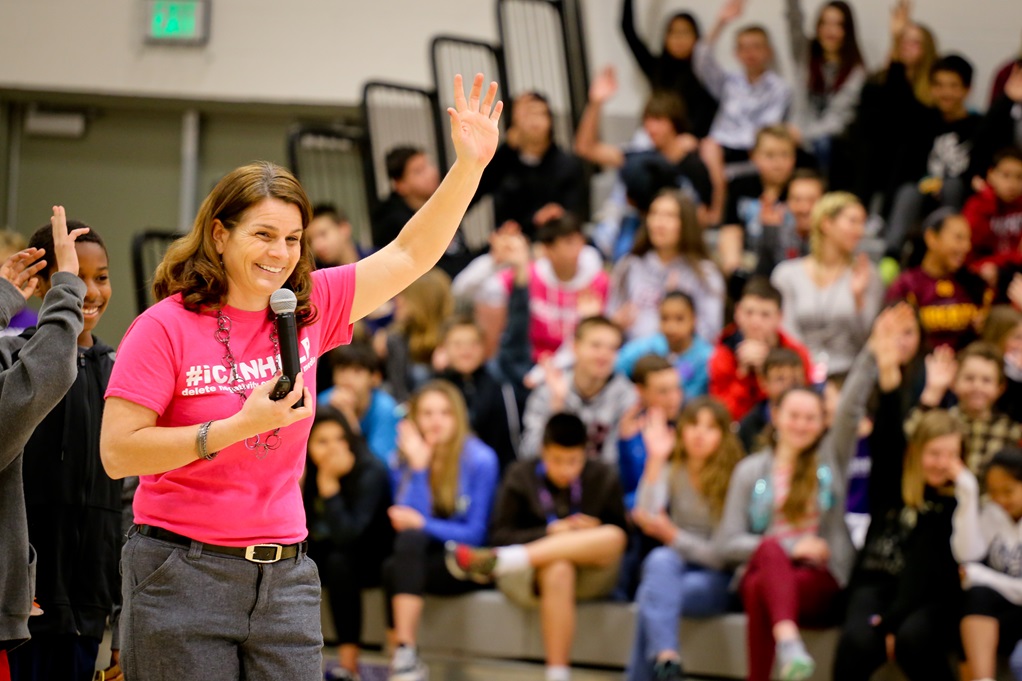
Digital4Good Gives Kids the Confidence to Confront Online Negativity
Digital4Good tackles a problem that our grandparents, and many parents, never had to face: cyberbullying. Like every other important innovation, the net and social media opened up a new world where obtaining information—and having a social life—is as easy as tapping your phone screen. That same click, however, can set in motion a world of pain for the user, and our children are especially vulnerable to attacks by online bullies.
Most children won’t tell their parents about the bullying. Even if they did, their parents may not have any clue what to do about the situation. As a result, some young people find the pain too great to deal with, and too many take their own lives. After the fact, their parents are shocked to discover what their children were forced to confront, and only wish they had known.
Children need to know how to be safe and protect themselves online. Parents and educators must become aware of the issue, and the extent to which cyberbullying has proliferated. That’s where Digital4Good comes in, offering support and guidance for children, families, and educators, equipping them with the tools they need to take positive action against online dangers.
We put some questions to Digital4Good Executive Director Kim Karr, to find out how our latest small grant recipient is tackling the issue of children and online harassment:
Kars4Kids: Since Digital4Good was founded, you’ve managed to train 2.4 million students, parents, and educators in digital safety and well-being. In 2023, for example, your curriculum reached 1,500 schools and 56,000 students. That’s quite impressive. Can you tell us a bit about your demographic? What is the age range of the students you are training? Where do you operate? Are you working more with school districts or individual families?
Kim Karr: Digital4Good is based in California, but we give presentations at schools and conferences all across the U.S., since online negativity is such a widespread issue.
Our target demographic is students in elementary through high school. When a toxic social media trend, shooting threat, or cyberbullying incident pops up online, students are almost always the first to see it. The more we train our youth to become responsible digital citizens, the more equipped they are to take positive action against those harmful incidents.
We have mostly been working with school districts and education organizations, but are branching out support to families as well, so students can receive guidance and support at home. We are in the process of revamping our digital safety course for parents and guardians, which will be available on our website soon!
We have also started offering a new presentation option for families called “Lunch with a Loved One” that gives parents the opportunity to have an open discussion with their children about digital safety and other important topics around social media use. These are generally hosted by schools, and are more for large groups than individual families, but we have seen some really high attendance and great engagement at these lunches. And it’s been fun for me personally to lead these events!
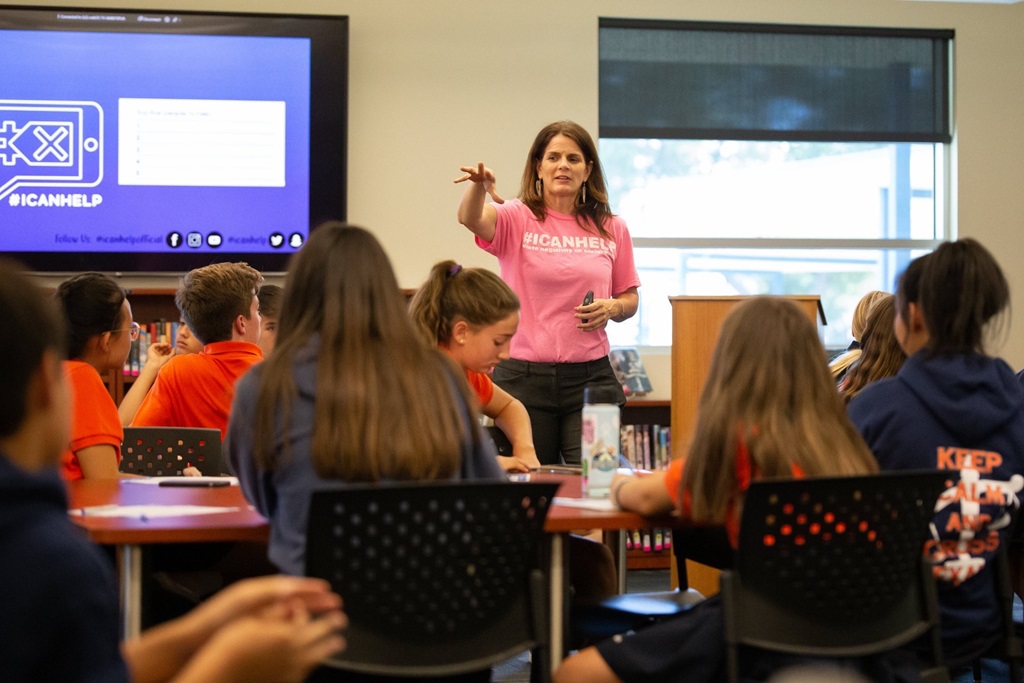
Kars4Kids: When was Digital4Good founded, and what was the impetus for starting your initiative?
Kim Karr: Before I started Digital4Good in 2013, I was working as a teacher and activities director at a local middle school for about 13 years.
In 2011, an anonymous user created a social media page to impersonate and attack one of our teachers. Over a thousand students followed the page and left harmful comments, and the page didn’t get taken down until two weeks later.
To prevent this from happening again, I created a training program to teach our students how to take appropriate action when encountering negativity online. A year after the program, when a similar page popped up and targeted the same teacher, over thirty students took action. Not only did no one follow the page, but it was taken down in less than a day!
Kars4Kids: Digital4Good believes that “students are the core of the solution.” If students are generally the target of cyberbullying and other forms of online harassment, how can they, at one and the same time, be the solution to these very serious problems that confront them?
Kim Karr: A big thing our organization does is train students to become discerning self-advocates who have the confidence to stand up for themselves and others. Like I mentioned earlier, students spend a lot of time online, so they’re often the first to see these incidents. Our role as educators, parents, and caregivers is to provide our youth with the proper training and guidance so that they are equipped to handle these incidents on their own or to support their peers.
Also, another great way to combat online negativity is by promoting positivity, and students have truly been at the forefront of that in recent years. Each year, we host an event called the Digital4Good Summit, which showcases kids and teens who are using digital technology or social media for the good of their communities. These kids are developing their own apps and starting their own 501c3 nonprofits to make a positive difference online and off, and it is so important to showcase that to inspire other kids to do the same.
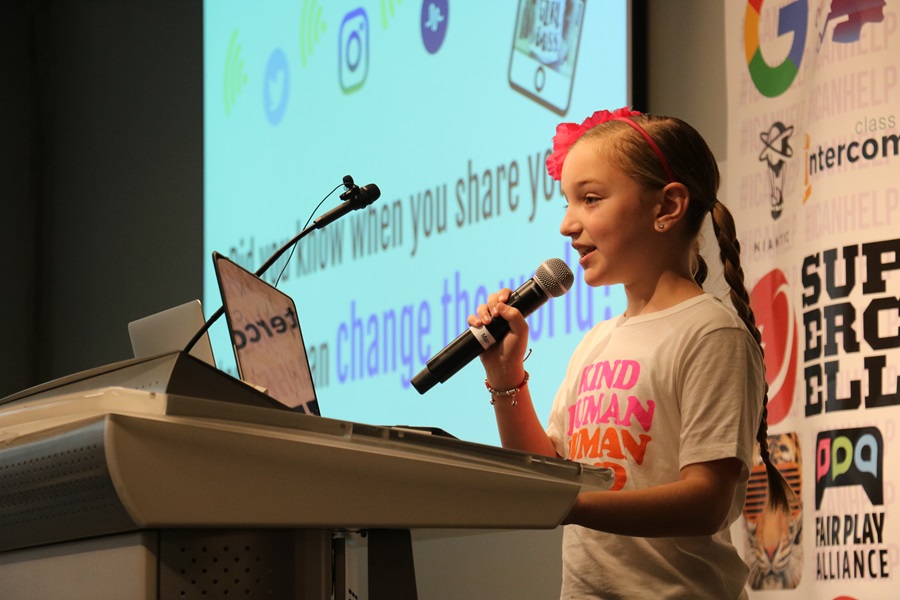
Kars4Kids: The Digital4Good website cites some dire statistics: “Only 1 out of 10 teen victims will inform a parent or trusted adult of their online abuse. It’s estimated that 90% of teens use and have access to social media. However, nearly 48% of teens do not turn to adults for help online and instead, turn to their peers for advice.”
Let’s say a teen does alert a parent or other trusted adult about experiencing online abuse—how should parents or trusted adults respond, and what can they do about the abuse? Why don’t kids want to tell their parents what’s going on?
Kim Karr: There are many possible reasons why kids won’t tell an adult about online abuse. Every kid is different. Some fear repercussions for their own role in reporting the incident, some kids don’t want to alarm or worry their parents, and others feel embarrassed or self-conscious about “snitching.” The important thing is to know how to respond if such an incident occurs.
If your child opens up to you about a cyberbullying situation, the best course of action is to take screenshots of the abuse first, then report the account and block the person. We have a free handout with quick links to reporting procedures for popular social media platforms available here. You can also alert Digital4Good of the incident by tagging @icanhelpofficial or emailing us at admin@icanhelp.net— we’ll get the post or page taken down for you.
Kars4Kids: Can you tell us a bit about your educator/parent digital safety course?
Kim Karr: Of course! We are in the process of updating this course to be more current and expect to have the new version available on our website soon. The new course title will be “Parent Guidelines for Youth Digital Safety.”
This is a self-guided video course geared towards parents, guardians, and caregivers on how to effectively support and guide your children in today’s digital era. You’ll learn essential skills such as promoting digital responsibility, improving the digital health of your home, and fostering a balanced tech-life approach.
Teaching kids about digital safety and responsibility is often a complicated, daunting task. It’s difficult to know where to start, especially when kids are reluctant to open up about what they’re doing online. With this course, we break the process down into manageable pieces while helping you foster open and honest communication with your kids about their social media use.
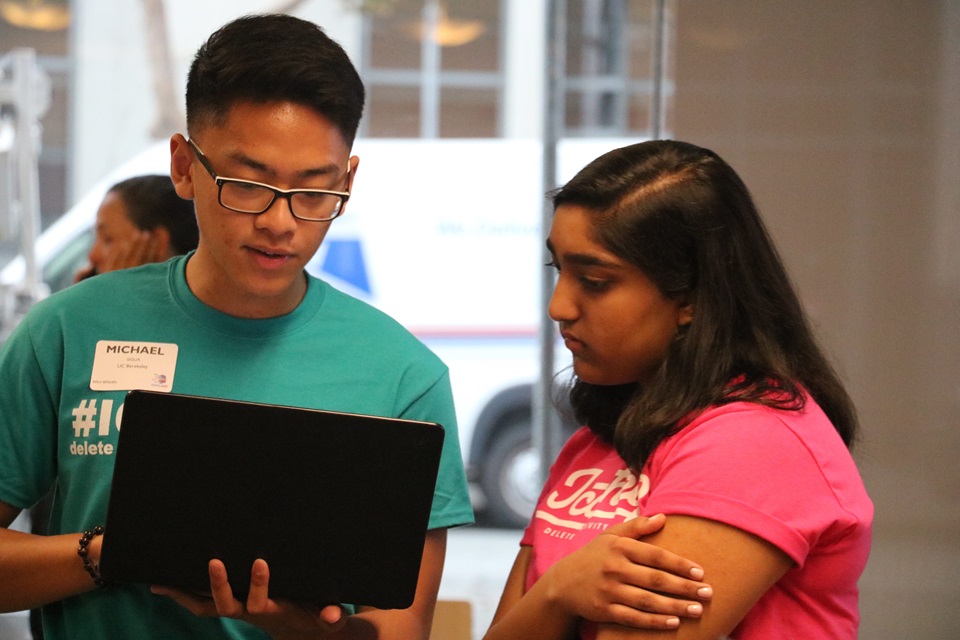
Kars4Kids: A lot of what you do is in the schools. You offer several presentations and training courses, but they aren’t free. What can educators expect to learn from the presentations and training courses? How can parents and teachers persuade their schools and school districts to invest in what we’re sure are amazing programs? Do you offer discounts to schools in less affluent neighborhoods/school districts?
Kim Karr: Our presentations and training workshops are tailored to each school and provide engaging and practical learning experiences that address the most pressing digital challenges facing students today, including cyberbullying, doxxing, deepfakes, and more.
If cost is an issue for your school, definitely don’t hesitate to get in touch with us. We’ll work with you to determine which resources are the best fit for your school’s budget and provide materials to help you convince your district for funding. We offer discounts to local schools in Contra Costa County, or to schools that team up with other schools in their area to book presentations. You can reach us directly at admin@icanhelp.net.
For schools that aren’t financially ready to book a presentation yet, we also offer free resources, like our Social Media Emergency Plan, as well as virtual events for students and educators, like our monthly Students4Good webinars and our annual Mental Health Series.
Kars4Kids: You offer student internships. How does that work? What are the benefits of serving as an intern?
Kim Karr: Our student interns gain experience in multiple professional disciplines and skills, including marketing, design, strategy, and project management. We also have a community of professional mentors from a wide range of industries who volunteer their time and expertise to prepare the students for their professional journeys beyond graduation.
In addition to gaining hands-on experience in their chosen field, students get to participate in free workshops to help them with networking, using LinkedIn, and resume building. If you’re a student over the age of 13 and want to gain hands-on experience in the nonprofit world, please consider joining us!
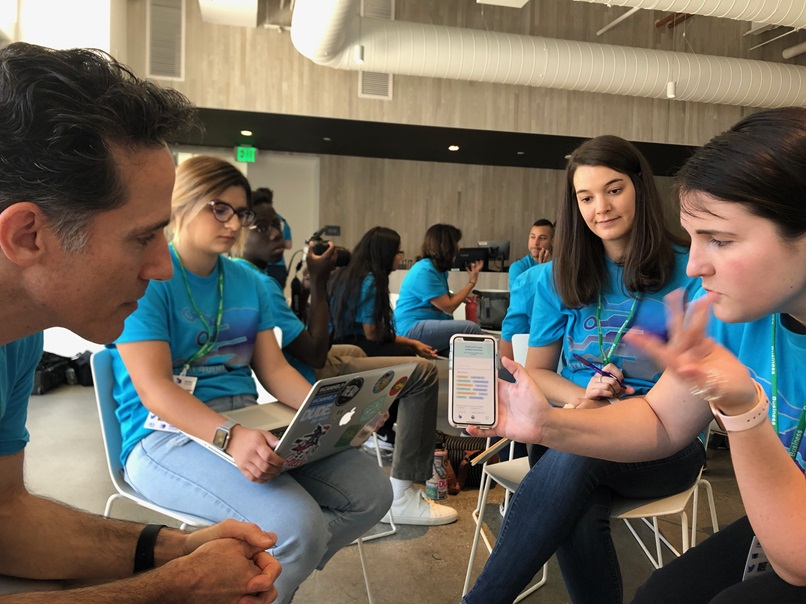
Kars4Kids: Digital4Good has a three-pronged approach: educate, engage, empower. Students4Good is one of the programs you offer to empower students to advocate for digital wellness and promote digital safety. How does it work?
Kim Karr: Students4Good is a free monthly webinar series that highlights kids and teens who are using their platforms to promote positivity at school or in their communities. It’s a bit like a scaled-down version of the Digital4Good Summit, in that each student speaker gives a three-minute “pitch” of their project and answers questions from the audience. Some of our Students4Good speakers have even gone on to present at the annual summit!
Any student can apply to be a Students4Good speaker through our website. It’s a great way to gain exposure for projects, as well as practical experience in public speaking! You can also sign up to join our online Students4Good community, where you’ll get updates about upcoming events and opportunities to chat with other students using digital for good.
Kars4Kids: Mentorship plays a role in the work you do. Can you talk about that? You list two types of mentoring—what are they?
Kim Karr: Our mentorship program is a great way for industry professionals to get involved with us. Mentors support our student interns’ projects, provide advice, and help interns develop critical professional skills. We currently have two mentor roles: committee and specialized.
The committee mentorship is more involved: mentors join monthly team calls, design short lessons and workshops for professional development, and provide regular guidance and feedback on interns’ projects.
The specialized mentorship is a more flexible option for those with busy schedules. Specialized mentors form one-on-one relationships with students and support our student volunteers when they need help with a specific project or event. This is an ideal role for mentors who want to help but can’t commit to joining a committee.
If you’re passionate about digital citizenship and working alongside youth, I highly recommend you sign up to be a mentor. We have a great team of mentors this year and are always looking for more to join the Digital4Good family!
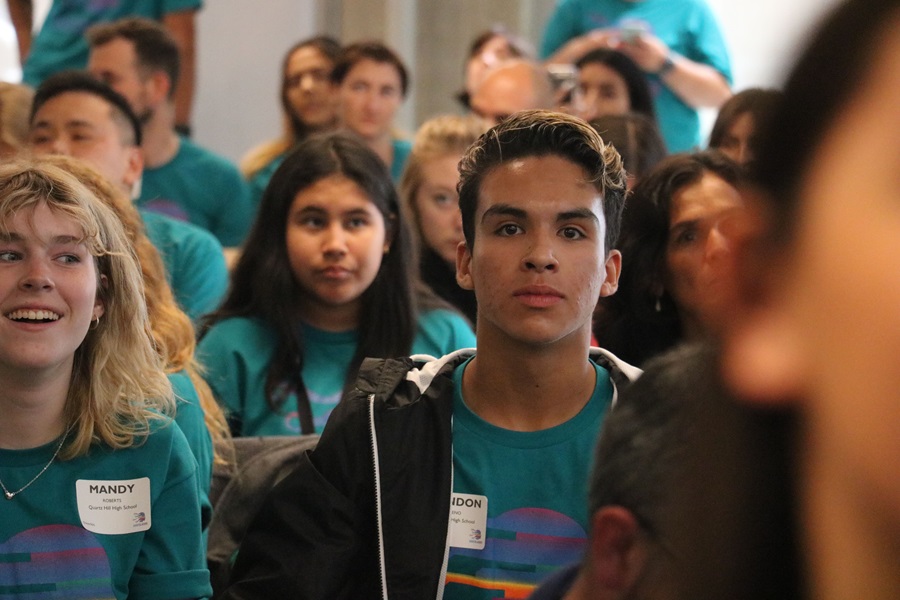
Kars4Kids: Can you give us an overview of your annual summit?
Kim Karr: The Digital4Good Summit has been a major event at our organization since 2017. Each year, the summit spotlights ten incredible student changemakers who are using technology to make a positive global impact. This year’s students started their own nonprofits and online platforms to support youth mental health; provide school supplies for underprivileged youth; empower girls in STEM; and advocate for cancer patients.
On the first day of the event, called “Digital4Good Growth,” we connect the selected students with professional mentors to support their projects’ growth and the students’ own professional and personal development. The students pitch their projects to panels of industry leaders, Shark Tank style. Each student gets to team up with a “Shark” and receive mentorship and business advice.
The second day, “Digital4Good Live,” is broadcast online for anyone to view. The students deliver their finished presentations to virtual and on-site audiences of students, educators, and industry professionals. The day is also packed with presentations from tech companies; music performances; interactive activities; and more.
This year’s event was hosted in March at Google headquarters in NYC and was received so well that they want to host us again! If you’d like to watch this year’s event and get updates about the 2025 summit, check out our website.
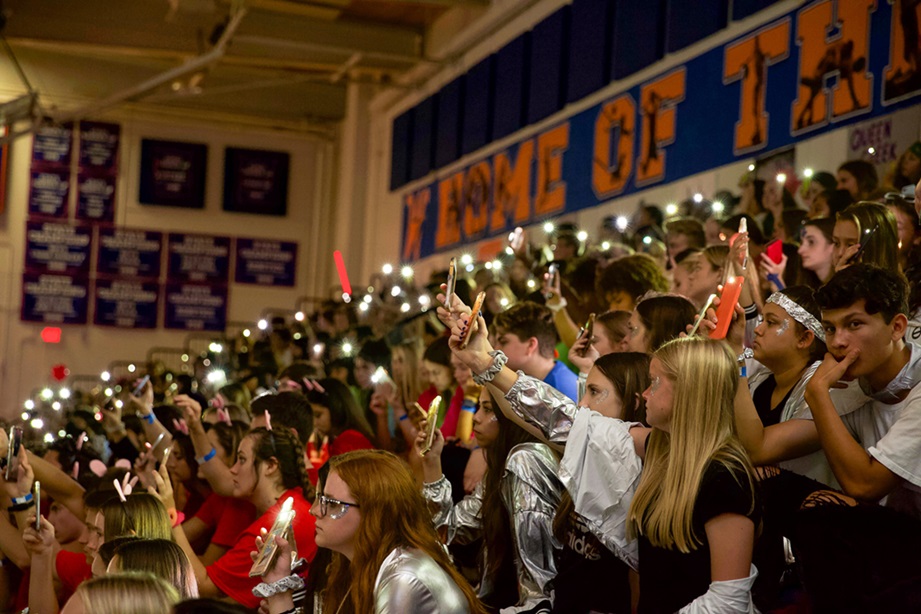
Kars4Kids: What’s next for Digital4Good?
Kim Karr: Our next big event is a Meet and Greet with Aaron Judge in September! Twice a year, we partner with Aaron Judge’s nonprofit, the ALL RISE Foundation, to host this event before his games, and it’s always a big hit with students. Check out our events page to get tickets for the next event!